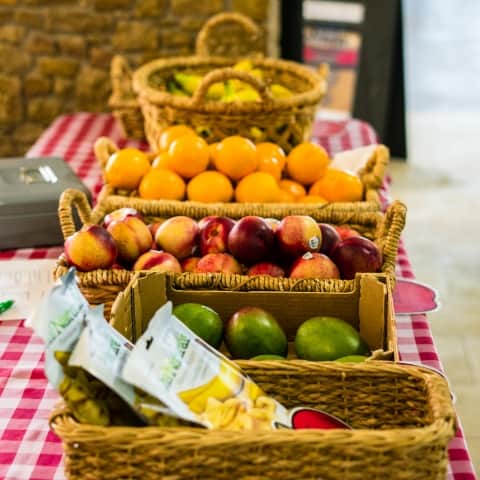Starting next year, the University of Saskatchewan Students’ Union Food Centre will have an online food-hamper program to help remove the stigma from accepting food donations and to assist students in short-term food emergencies.

The new USSU Food Centre hamper program will bring self-selected items to students straight from the supermarket.
The food-hamper service will be accessible once every two weeks, supplementing the current emergency food-
hamper service, and will be available exclusively to students. The program will offer food items that fit a range of dietary restrictions, including halal, vegetarian and gluten-
free diets.
The current program uses items donated to the Saskatoon Food Bank and Learning Centre, but the new program will purchase food items directly from supermarkets. Mark Tan, outgoing co-ordinator of the USSU Food Centre, discusses how the new food-hamper program will allow students to self-select their items, instead of receiving items based on the what is available, which is how the Saskatoon Food Bank operates.
“Hopefully, it will be a better option for students because we have more control on what we can put inside the food hampers,” Tan said. “But, what we are planning to do is to try [to] get things that we know that students want and we know that we will be able to afford to support the program.”
In December 2017, Parking and Transportation Services donated $7,500 to the USSU, who allocated the funds to the USSU Food Centre for the new food-hamper program. Although participation in the program is anonymous, the Food Centre will be tracking hamper usage based on colleges. Additionally, the program will provide culturally sensitive foods as well as other essentials such as toiletries, detergent and toilet paper.
The new program will use online forms, email and text messaging as communication methods. Tan says that less face-to-face contact between the centre and the students may reduce some of the stigma students face when accepting food hampers.
“For the new program, we are trying to figure out if we can get it done online on a Google form, so that students can click and select whatever things they want and then come in and pick it up. For the old program, they come in and fill [out] a form by Wednesday, and on Thursday, they get a delivery,” Tan said.
Tan notes that it would be unrealistic for the USSU Food Centre to try to consider the cultural differences of all students with this new program, but they will provide food that can accommodate a wide variety of diets. For Tan, it is important that the emergency food hampers include food items that are appropriate for the students’ diets, as the Saskatoon Food Bank cannot accommodate this.
“We have taken into consideration the dietary needs, just because it [means] that the students [won’t] get what is left. That’s one of the main reasons why we wanted to start this — so that we can better suit the needs of our students who are coming in, and that way, we have more tangible data to work with and we can cater the program to the needs of our students,” Tan said.
Tan notes that the USSU will be financially supporting this program through student fees. As his term as USSU Food Centre co-ordinator comes to an end, he recommends that the incoming co-ordinator establishes financial and social partnerships among groups on campus.
“I will get them to build relationships with Culinary Services [and] Consumer Services … and [by] organizing events or partnerships with other parts of the university,” Tan said. “When someone takes over, … they [will] make new connections that I wouldn’t have thought about. And, I think working with as many people on campus as possible would definitely raise the awareness, and more people, therefore, will come forward to make donations and support our cause.”
—
Bidushy Sadika
Photo: Heywood Yu
Leave a Reply